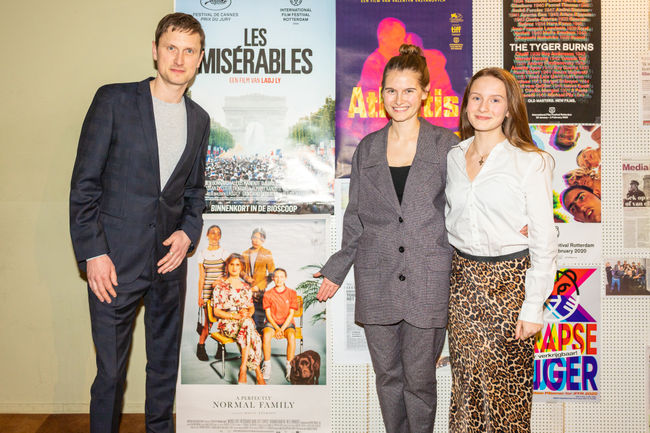Interview Kenneth Mercken
09 May 2019
Kenneth Mercken about his cycling film Coureur
With his feature-film debut Coureur, Flemish filmmaker Kenneth Mercken shows the dirty side of cycling, more specifically the world of blood doping. As a former semi-professional cyclist, Mercken knows this world intimately. At the same time, the film is a story of the destructive competitiveness between father and son.
Is it hard to make such an autobiographical film?
In talk shows and interviews I’ve always been very open about my experiences in the cycling world. My graduation film, which spawned Coureur, also dealt with this topic. The first film was about two Russian cyclists and featured some illegal practices. One of the actors asked me: where are the Belgians in this story? And he was right, we all have to do it. Perhaps I hid some things away there. As a director I had the privilege of knowing this world inside out, having experienced it from the very heart of the peloton. If someone was to break the omertá, it should be someone who’s entitled to tell the story and can tell it in an authentic way. Telling my own story turned out to be a therapeutic process as well. The hard part was finding the distance to transform the story into fiction. At first, the script was mostly a series of anekdotes. At that point the protagonist was called Kenneth, too. But after a few scriptwriting labs I was able to make the switch, and Kenneth turned into Felix. It had to be fiction. Otherwise it’s hard to add the dramatic arch.
You never considered making a documentary?
A documentary doesn’t just reveal parts of yourself, but inevitably also reveals parts of others’ lives. The film as it is does that as well, but to a lesser extent. Did I ask my parents for permission to shoot this film? Well, my dad and I don’t need many words to understand each other. He was proud of my short film, even though the film revolves around the idea that he could only be proud of me as a cyclist and nothing else. His first reaction after seeing Coureur was: you spared me. A very macho thing to say, I think. It’s a shield he hides behind. A bit later, as we were having a drink at a bar, he said: I’ve made a mistake. It was strange to hear him say that. I didn’t know how to reply. Right afterwards he turned to my producer and said: but I’m still the better cyclist.
People ask me all the time: is Coureur your way of reckoning with cycling? Definitely not! I don’t feel any resentment.
— Kenneth Mercken
Without spoiling anything: the ending scene delivers quite a blow.
It sure does. That shot implies that everything that lead up to it actually happened. Of course that’s not the case. Some things are fictionalised. However, they’re not too far from the truth. Take the blood transfusion scene, where the dad draws his own blood and gives it to his son so he can pass the doping test. It’s a symbolic gesture: the dad gives away a piece of himself to benefit his son’s journey. That didn’t actually happen, but I’m sure my dad would have done it had I asked him.
Is Coureur your way of saying goodbye to cycling?
People ask me all the time: is Coureur your way of reckoning with cycling? Definitely not! I don’t feel any resentment. It’s a fantastic sport and I still train every day. I’m in the same cycling team as the actor who plays Felix. However, I do know that I should not try to go for the highest level. I’ll go to far. That fault is both genetic and instilled by my dad from a young age. Should I judge him for that? In a way I’m thankful for it. It’s made me who I am today.













